In the forests of the Vologda region: the shadow of "Zeppelin"
One of the most important components of national security is state security, whose task is to identify and eliminate external and internal threats to the state, countering their sources, protecting state secrets, territorial integrity and independence of the country.
Foreign intelligence as part of the state security system is aimed at obtaining intelligence information about the enemy in order to identify external threats to the state and implement measures that prevent damage to the national interests of the country, including the use of undercover and operational investigative activities. This invisible struggle with a real adversary, from the successes and failures of which depends on the viability of the country, the state and society as a whole, is carried on, not ceasing day and night around the world - both by legal and illegal methods and means.
Lieutenant-General Boris Ivanov carried out the operational management of all of this most complex reconnaissance organism for many years. Until today, this person’s personality, his life course and professional activities are hidden by the vultures, covered with a fog of secrets and conjectures. Involuntarily glancing the second floor. The twentieth century, we see him at meetings with the leaders of the USSR and at negotiations with presidents of foreign countries, on the slopes of the Andes and in the Asian jungle, during friendly talks in Havana and tough confrontations in Kabul, hot debates in the UN Security Council and on quiet streets of the world capitals.
Boris Semyonovich Ivanov also worked in counterintelligence in the Second Main Directorate of the USSR Ministry of State Security, then going on to intelligence, was a resident in the United States of America, including during the Caribbean crisis. After returning from there - Deputy, First Deputy Head of the First Main Directorate (foreign intelligence) of the KGB of the USSR.
Ambassador Extraordinary and Plenipotentiary of the USSR, head of the USSR delegation at the Stockholm Conference on Security and Disarmament in Europe, Oleg Grinevsky, recalling his meetings with Boris Semenovich, writes: “He didn’t tell anything about himself ... He was silent, iron, you see, a man.”
Boris Semenovich Ivanov was born on July 24, 1916 in Petrograd and was the first-born in a large family. After the revolution, the family moved to Cherepovets. Boris graduated with honors from secondary school No. 1 named after Maxim Gorky and entered the Leningrad Institute of Civil Air Engineers fleet (LIIGVF). Like many of his peers, aeronautics and aircraft construction completely captured him, taking away all his free time.
10 August 1935 of the USSR People's Commissar of Internal Affairs signed an order No. 00306 “On the organization and recruitment of 1 10-inter-boundary schools for the preparation of the staff of the UGB”. The order prescribed the formation of special educational institutions for the preparation of the operational staff for the planned replenishment of the organs of the Main Directorate of State Security (GUGB) of the NKVD of the USSR.
In 1937, Boris Ivanov was invited to the Komsomol district committee and sent to the personnel commission of the NKVD, where he was offered to link his life with state security. The curriculum at the Leningrad Inter-Edge School of the NKVD was compressed - one year. It included special (KGB), secret service, military training, mastering the program of secondary legal education, the study of a foreign language. In addition to the lectures, practical classes were conducted in combat training conditions, tasks were solved, examples from the practice of KGB operations were analyzed.
In the same year, another event occurred, which largely influenced the fate of the young Chekist. 23 September 1937 by the decree of the CEC of the USSR “On the division of the Northern Region into the Vologda and Arkhangelsk Regions” was established the Vologda Region. Boris Ivanov was sent to 1938 for the work in the newly created NKVD Administration for the Vologda Oblast.
Supervised NKVD in the Vologda region, Captain of State Security Peter Kondakov. Subsequently, he worked as head of the NKVD in the Yaroslavl region, Smolensk region, Minister of State Security of the Crimean Autonomous Soviet Socialist Republic (1948 – 1951 years), a member of the Collegium and Deputy Minister of State Security of the USSR. His deputy (and from 26 February 1941 of the year - Head of the NKVD in the Vologda region) was 30-year-old state security captain Lev Galkin, a hereditary worker from the Moscow region, an energetic, strong-willed and sociable person. In 1945, Lev Fedorovich became the Minister of State Security of the Turkmen SSR, and completed his life journey in 1961 in the rank of Major General as head of the Directorate of the KGB of the USSR in the Khabarovsk Territory.
Vologda is famous not only for Vologda butter. In 1565, this city became the capital of the famous oprichnina Ivan the Terrible - the first in Russian stories emergency commission ("oprich" means "except"), designed to break the resistance of the nobility, the oligarchy and other classes who oppose the strengthening of a single centralized state. In form, the oprichnaya guard was a monastic order, which was headed by the hegumen - the king himself. Oprichniki wore black clothes, similar to the monastic, attached to the neck of the horse a dog's head, and to the saddle - a broom on the whip. This meant that they first bite like dogs, and then sweep all the excess out of the country.
Oprichnina Tsar Ivan the Terrible responded not only to the Kiev era in the person of her relic of Novgorod, but also to the Horde. In the 1570 year, the “independent” Novgorod was crushed, and the case of the “Novgorod treason” in Moscow was investigated. At the same time, the oprichnina was a response to Western pressure: economic, military-political, and, equally important, spiritual.
In the capital of the oprichnina, the king ordered the construction of a stone Vologda Kremlin, which was twice as large as the Moscow one. Construction work was carried out under the personal supervision of the king. However, in the 1571 year, Ivan the Terrible unexpectedly stops them and leaves Vologda forever. The reasons for this are hidden deep mystery.
After the foundation of St. Petersburg, the value of Vologda began to fall. But it rose sharply again in the 19th century in connection with the opening of navigation along the North Dvina waterway, and then thanks to the construction of a railway line connecting Vologda with Yaroslavl and Moscow (1872), with Arkhangelsk (1898), with Petersburg and Vyatka (1905) .
Occupying a key transport position in the North-West of Russia, Vologda could not help but be at the forefront of the special services. In August 1918, Western diplomats conspired to overthrow the Soviet government (“Ambassadors Conspiracy”). The head of the British mission, Robert Lockhart, and the resident of British intelligence, Sydney Reilly (Solomon Rosenblum), with the participation of French Ambassador Joseph Noulance and US Ambassador David Francis, attempted to bribe the Kremlin’s guarding Latvian shooters to arrest the All-Russian Central Executive Committee meeting with Lenin to denounce the Brest Treaty and restore the Eastern Front against Germany . Two regiments of Latvians, whom the British, in addition to 5 – 6 million rubles, promised to assist in recognizing Latvia’s independence, were to go to Vologda to unite with the British troops who landed in Arkhangelsk and help them advance towards Moscow.
30 August 1918, an attempt was made on Vladimir Lenin and the murder on the same day of the chairman of the Petrograd Cheka, Moses Uritzky. In response, the Central Executive Committee announced the red terror.
The Chekists, who had their informant in the Latvian division, stormed the British embassy in Petrograd and arrested the conspirators, killing British naval attache Francis Cromie, who opened fire. On the night of September 1, Robert Lockhart was arrested in his apartment in Moscow.
The counterrevolutionary rebellion, which had led Vologda into its orbit, was suppressed.
In the 1930s, the importance of Vologda as a large railway junction connecting Arkhangelsk, Leningrad, Moscow and the Urals continued to grow. Ensuring his security fell on the shoulders of the Chekists. The team got to the glory - young, but thoughtful and competent guys, all great athletes, who were happy to spend their free time on the volleyball court or ski track. At one of these competitions, Boris met his first love and future wife in life. Antonina Ivanova (Sizova), just like him, was born in 1916 year and worked in UNKVD-UNKGB in the Vologda region.
The Second World War was approaching. 26 November 1939 of the year the government of the USSR sent a note of protest to the government of Finland and laid responsibility on it for the start of hostilities. Immediately after that, volunteers from Sweden, Norway, Denmark, Hungary, Estonia, the USA and the UK began to arrive in Finland - a total of 12 thousand people.
One of the features of the Finnish campaign is the need to name the conduct of hostilities in certain areas and the presence of significant gaps between them, reaching 200 km or more. An important measure to cover the gaps between operational areas was active and continuous reconnaissance in order to detect the enemy, determine its composition, condition and intentions. For this purpose, consolidated units of the NKVD were formed, sent to remove 35 – 40 km from units and subunits. The task of these detachments, in whose ranks, and 23-year-old state security sergeant Boris Ivanov, fought, was not only reconnaissance of the enemy, but also the defeat of his reconnaissance and sabotage groups, the destruction of bases, especially in areas where the Red Army troops did not fight or waged with limited goals.
On the very first day of the Great Patriotic War, the Vologda Oblast was declared on martial law. In the fall of 1941, the situation was complicated. Part of Vytegorsky district (formerly Oshta region) was occupied by Finnish troops. On September 20, Head of the Directorate Lev Galkin informed the RF Commander of the Arkhangelsk Military District Lieutenant-General Vladimir Romanovsky:
“In the Voznesensky district of the Leningrad region, a group of enemy troops consisting of 350-400 people with two medium tanks and six wedges ... In the area of Ascension, Oshty and Vytegra there are no infantry infantry units. There is a training unit of the Air Force serving staff of military depots, workshops and two rifle battalions, but no weapons. In the case of the occupation by the enemy of Ascension, Oshta and Vytegra, a threatening situation is created for Petrozavodsk. ”
October 11 The 1941 chief of the Vytegorsky district department of the NKVD reported to Galkin:
“There is information that the enemy is concentrating forces ... Today, 180 people from the convalescent and parts of the supply station located in Vytegra have been sent from Vytegra to a part of Colonel Boyarinov. Armament - some rifles. Ascension is burning.
October 19 1941, as a result of the actions of the Red Army units and the fighter battalions, the situation on the Oshta sector of the front stabilized. The threat of an enemy breakthrough into Soviet territory was eliminated.
At the same time, Colonel-General Franz Halder, Chief of Staff of the Supreme Command of the Wehrmacht Land Forces, wrote in his service diary: “Tasks for the next (1942 year) ... Mastering Vologda-Gorky. Deadline - by the end of May. According to the supreme commander of Finland, field marshal Gustav Mannerheim, the capture of Murmansk, Kandalaksha, Belomorsk and Vologda "was crucial on the whole front of Northern Russia."
Therefore, the special services were actively involved in the struggle. Of particular importance was attached to the main interchanges of the Northern Railway, which fed the Leningrad Front. When the army group "North" was created abverkommand-104 (call sign "Mars"). It was led by Lieutenant Colonel Friedrich Hemprich (aka Peterhof). Agents were recruited in POW camps in Konigsberg, Suwalki, Kaunas and Riga. In-depth individual training of agents was carried out for their subsequent work in the areas of Vologda, Rybinsk and Cherepovets. The transfer was carried out by aircraft from the Pskov, Smolensk and Riga airfields. For return, agents were given Peterhof and Florida oral passwords.
Since the summer of 1942, the Soviet counterintelligence officer Melentiy Malyshev worked in the abvercommand-104, having penetrated there under the guise of a defector. It was thanks to him that the most valuable operational information about the intelligence school in the Estonian city of Valga and the saboteurs thrown into the Soviet rear became known to the Soviet Chekists.
In January, 1942 in the area of Demyansk, Soviet troops launched an offensive and surrounded the main forces of the 2 Army Corps 16 of the German Army Army Group North (the so-called Demyansky Cauldron).
The Soviet Information Bureau was quick to announce a major victory. However, in March 1942, a new intelligence agency Zeppelin (Unternehmen Zeppelin) was formed to destabilize the Soviet rear in the structure of foreign intelligence of the security services (SD-Ausland - VI Division of the RSHA). SS chief brigadefuhrer SS Walter Schellenberg wrote in his memoirs about this organization:
“Here we have violated the usual rules for the use of agents - the main attention was paid to mass. In the camps for prisoners of war, thousands of Russians were selected, who, after training, were parachuted into Russian territory. Their main task, along with the transfer of current information was the expansion of the population and sabotage. "
One of the training centers "Zeppelin" was located near Warsaw and another one - near Pskov.
As a result of the actions of Zeppelin, the Soviet operation to liquidate the German group in the Demyansk Cauldar failed. The fact is that the Germans from their agents, penetrated into the rear of the Soviet troops, received information about their numbers and the intended direction of the main attack. At the same time on the territory of the Novgorod region "Zeppelin" threw 200 saboteurs. They destroyed the railway lines Bologoe - Toropets and Bologoe - Staraya Russa. As a result, replenished trains for Soviet troops and ammunition were detained. In April 1942, the Germans broke through the encirclement ...
27 February 1942 of the year in 22 hours. Heinkel-88 rose from the airfield in occupied Pskov and headed east. At high altitude the aircraft crossed the front line. Having reached Babayevsky district of the Vologda region, it decreased, having made several circles over the blackened forest massif, and turned to the west. Three paratroopers descended into a forest clearing. Having burrowed the parachutes, all three of them were wolf-like, next to the next, walked through the deep snow towards the railway ...
The head of the Vologda NKVD Directorate, Lev Galkin, used to work until 5 in the morning. But on this day I wanted to leave early - after all, 8 Martha, a holiday. Just turned off the light - the phone rang. The head of the transport department reported that a German paratrooper was detained when checking documents at Babaevo station. Soon Galkin brought protocols of his interrogation. Lev Fedorovich invited the head of the AOC (counterintelligence department) Alexander Sokolov. As a result, all three were captured: Nikolai Alekseenko (pseudonym Orlov), Nikolai Diev (Krestsov) and Ivan Lihogrud (Malinovsky). Of these, only Alekseenko was deemed fit for work as a “double agent”. The rest did not instill confidence in the security officers, and 25 of June 1942 of the year was sentenced to death by sentence of the Special Meeting.
As Alekseenko showed, he had to transmit spy information to the Germans using a specially defined slogan cipher, having for this purpose a key, his call sign (LAI without Y) and German radio stations (“YOU”), hours of operation - 12 h. 20 min. and 16 h. 20 min. and wavelength.
With these events began the radio game "Master", now recognized as a classic of "operational games." A member of the Vologda Department, the future head of Soviet intelligence Boris Ivanov also became a participant in this and a number of other games.
The information transmitted by Orlov to the German intelligence center in Pskov was diverse and looked reliable. In one of the radiograms, for example, there is a report about a certain staff officer of the 457 Infantry Division, Senior Lieutenant Sergei Appolonov - a big talker and a fan to drink. In the other, there is a hint at the intensification of the insurgent movement: the Ukrainians expelled to the Vozhegodsky district "openly speak against the Soviet government and for the revival of Ukraine."
July 8 Orlov transmitted the most important misinformation on the air: “From 1 to 3 July, 68 echelons passed through Vologda to Arkhangelsk, of which 46 – 48 with troops, 13 – 15 with artillery and tanks. Infantry and tanks are being transferred to Tikhvin. For the 3 of the day, the 32 echelon passed. ”
“This means that it is unreasonable to withdraw troops from our sector of the front for an offensive in the south,” concluded Lieutenant Colonel Gemprih, head of the Abverman-104. “The Russians are concentrating the strike fist here,” and he circled the circle northeast of Leningrad on the map. “Immediately inform the command of Army Group North and Admiral Wilhelm Canaris to report on this at the Führer's headquarters ...”
By the end of 1942, the main task - to misinform the enemy about the acquisition and movement of troops on the Northern Railway - was completed. Hempriha left a message stating that in Vologda, at the time of checking the documents, the members of the group allegedly almost fell, and one of them was injured. Staying in the city is dangerous, so it was decided to leave for the Urals.
Vologda Chekists managed to fairly reliably withdraw Alekseenko from the game. In June, 1944, a special meeting sentenced him to 8 years of forced labor camps. However, Colonel Galkin was able to obtain a review of the sentence: Alekseenko’s sentence was reduced to three years. In 1946, he lived in Vologda on Kirov Street ... Nothing is known about the future fate of this man.
By a decree of the Presidium of the Supreme Soviet of the USSR, 21 of September 1943, Lev Fedorovich Galkin and the head of the CRO Alexander Dmitrievich Sokolov were awarded the Order of the Red Star, and the head of the 1-CRO department Dmitry Danilovich Khodan was awarded with the title of the CRO of Dmitry Danilovich Khodan. Boris Semyonovich Ivanov also appears in this decree - he was awarded the medal "For Courage", and a little later - the sign "Honored Worker of the NKVD."
A continuation of the radio game "Host" was the operation "Demolitions", conducted by the SMERSh GUU and the staff of the Vologda Department against the German intelligence agency Zeppelin in 1943 – 1944. The intentions of the Germans to throw a significant number of SMERSH saboteurs on the Vologda-Arkhangelsk railway line became known to 20 September 1943 of the year from the interception of an encrypted radiogram sent from the Pskov region to Berlin:
“Kurrek. Regarding the northern railway operation. We are planning to conduct a sabotage operation in the operational zone “W” on 10 in October. 50 saboteurs will participate in this operation. Kraus. "
SS Sturmbahnführer Walter Kurrek at the Zeppelin headquarters in Berlin was responsible for training the agents, and SS Otto Kraus was the head of the Zeppelin main team on the northern front.
On the night of October 16, 1943 of the year on the border of the Kharovsky and Vozhegodsky districts of the Vologda region dropped a group of five saboteur agents with the task of finding a platform for landing the main group, and then proceed to implement sabotage acts on the Northern Railway and organize rebel groups from the anti-Soviet element. The group's senior, Grigory Aulin, came with a confession, and the radio station that was confiscated from him was included in a radio game, as a result of which 17 saboteurs "Zeppelin" were summoned to our side. The Soviet counterintelligence officers then long misled both the fascist command and its intelligence services.
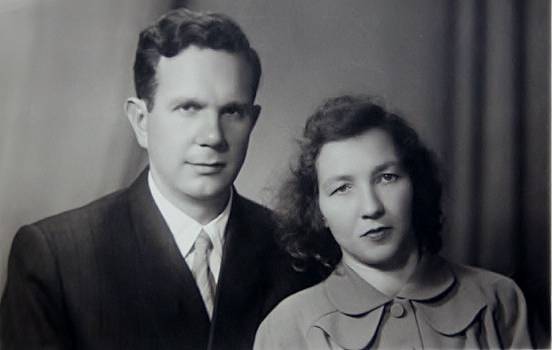
On a dank autumn night of 1946, the Lubyanka windows went out long after midnight when a call came from the Kremlin to the duty officer of the USSR Ministry of State Security: “The master left”. But one window flickered until late dawn. The chief of the Soviet counterintelligence 31-year-old, Major-General of State Security Yevgeny Pitovranov, as told in his book “Foreign Intelligence. The Department of Special Operations (2006), Major General Alexander Kiselyov, took the rule from time to time to invite employees of territorial administrations to Moscow. That night he hosted a band from Vologda. Saying goodbye to them, he asked Major Boris Ivanov to stay.
They met in the winter of 1941, in the Vologda forests, which the Germans flooded with their agents. Pitovranov as a representative of the operative group at the Moscow Defense General Staff Headquarters specially arrived at the site in order to become better acquainted with the situation, because from here to Moscow it was within reach. They found something to talk about:
- Do you remember, Boris Semenovich, how did you chase Murza? The cunning was a rascal ... And his documents turned out to be in perfect order.
“I remember how they took the Blind Man,” Ivanov continued the conversation. - A few guys then put, but that reptile ...
- This is which during the interrogation fired in you? Only from what, - asked Pitovranov.
- In his prosthesis, the bolt was removable, asked to loosen - well, and swayed. I somehow dodged ... But how did he then “thresh” under our dictation! Through him, we shoved twenty souls to our side.
- After all, worked well? There is something to remember! - summed up the general.
From memories gradually moved to current affairs. At the conclusion of the conversation, Major Ivanov accepted the proposal of the Chief of the Second Commander-in-Chief, General Pitovranov, to move to the central state security apparatus and to lead the work against the “main enemy”.
Boris Semenovich himself recalled:
“Several years of hard work against the Americans in Moscow made it possible to understand the peculiarities of their handwriting, to clearly present their strengths and weaknesses as objective components of a national character, that is, to“ feel ”them both in specific operational situations and in life in general. And for me, already in intelligence, this experience has proved invaluable. ”
October 27 1951, the year of Evgeny Petrovich Pitovranov was arrested in the "Abakumov case." After being liberated at the beginning of 1953, he was appointed head of the PGU (foreign intelligence) MGB of the USSR. Since that time, the American direction of intelligence was headed by Boris Semenovich Ivanov.
At the beginning of 1973, Lieutenant-General Boris Semyonovich Ivanov invited Colonel Alexander Viktorovich Kiselev to his office and invited him as his assistant to lead the new service, which was personally subordinate to the Chairman of the USSR KGB, Yury Andropov. It was about a special department in the structure of illegal intelligence - the functions of this division still remain secret. In any case, his goal was to penetrate into the highest financial and political circles of the world under the guise of the USSR Chamber of Commerce and Industry, whose deputy chairman (and then chairman) was ... Yevgeny Petrovich Pitovranov.
Thus, Boris Semenovich Ivanov became one of the most informed people in the world, which did not seem to suit everyone. 12 May 1973, at the age of 57, his wife and faithful companion, Antonina Gennadyevna, dies on the operating table. And the department of special operations at the PGU will be disbanded already in 1985, immediately after Mikhail Gorbachev came to power ...
Be that as it may, Boris Semenovich largely influenced our history and created it on the basis of Chekist traditions and his own ideas about justice and duty. Perhaps future generations will be something better, more humane. But they will not experience the burden of many years of struggle that constantly put pressure on him when tough pragmatists came to the leadership of the Soviet intelligence who had gone through the hard school of World War II, whose professional development was forged in a deadly fight with the best intelligence services of Nazi Germany.
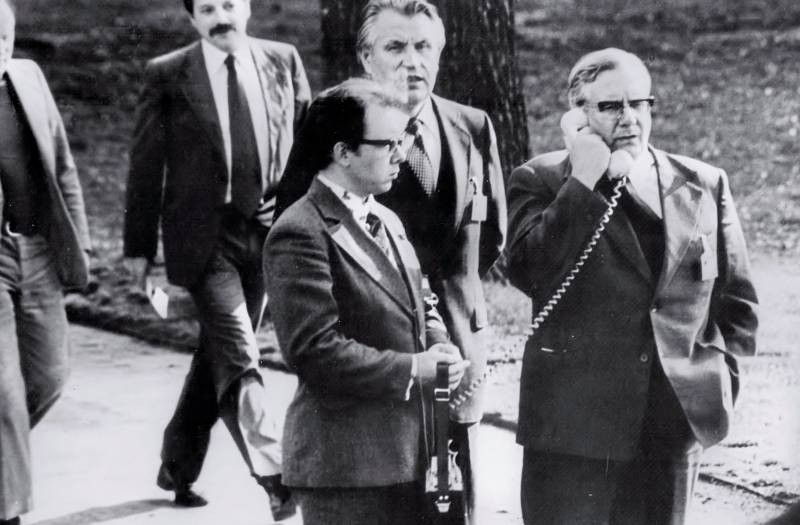
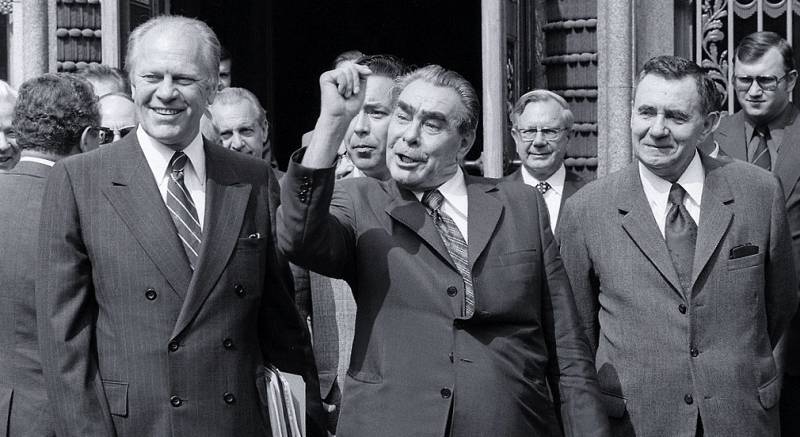
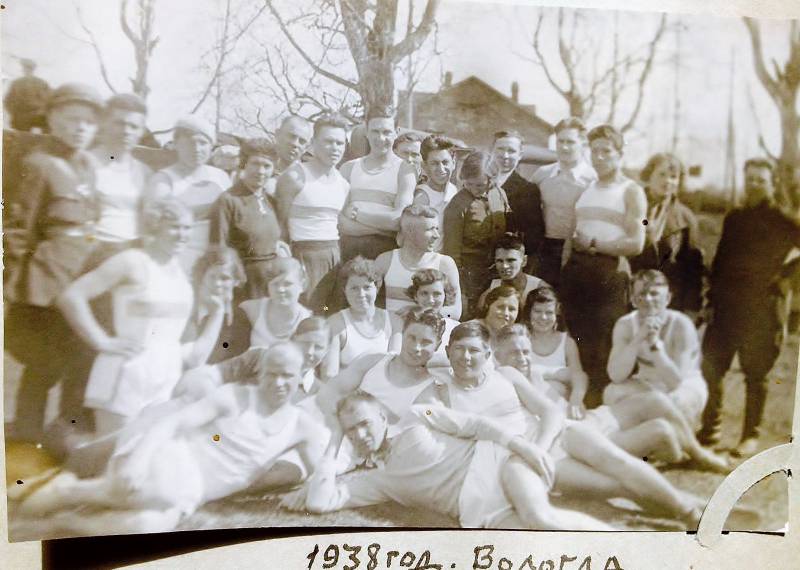
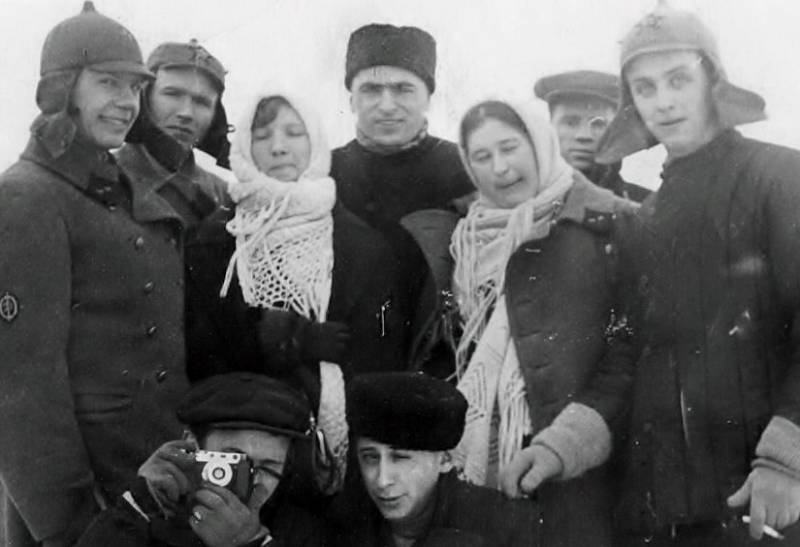
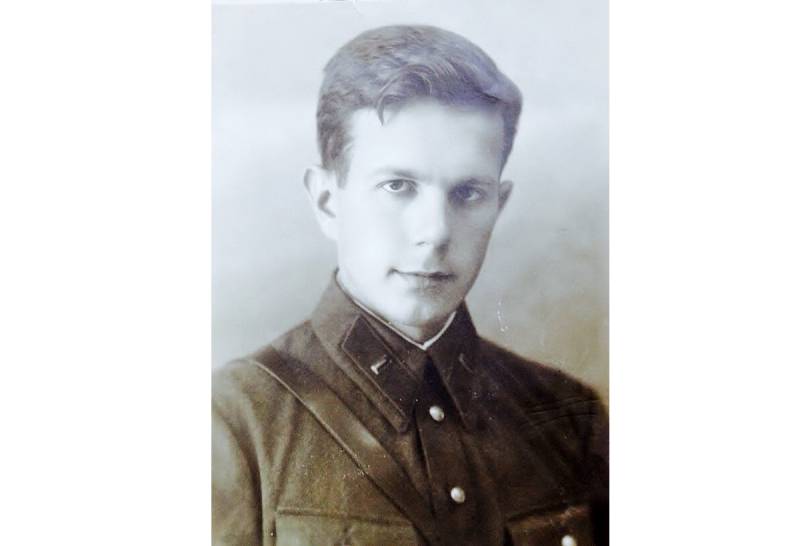
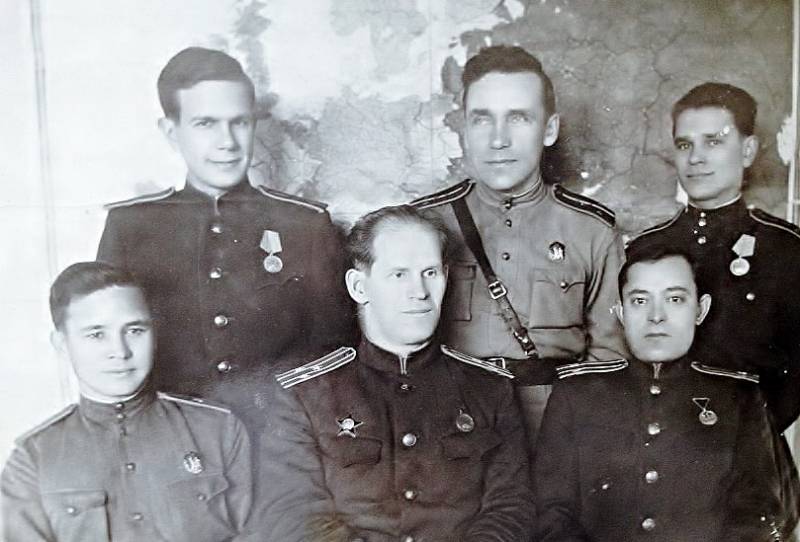
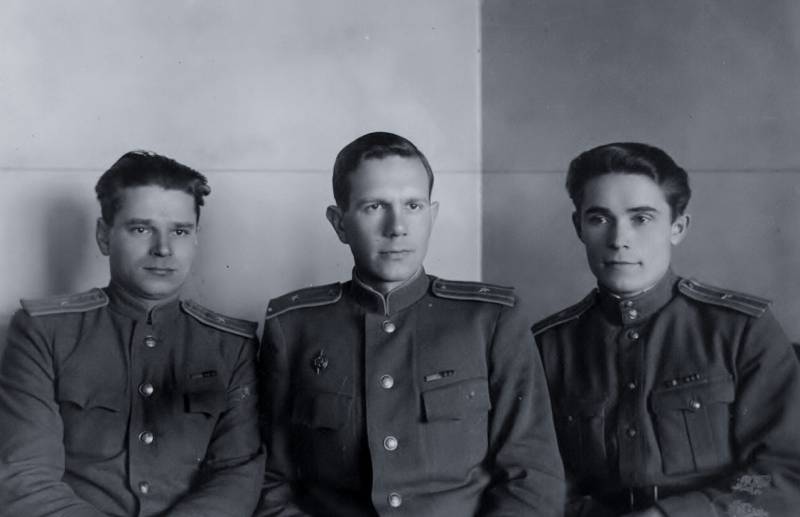
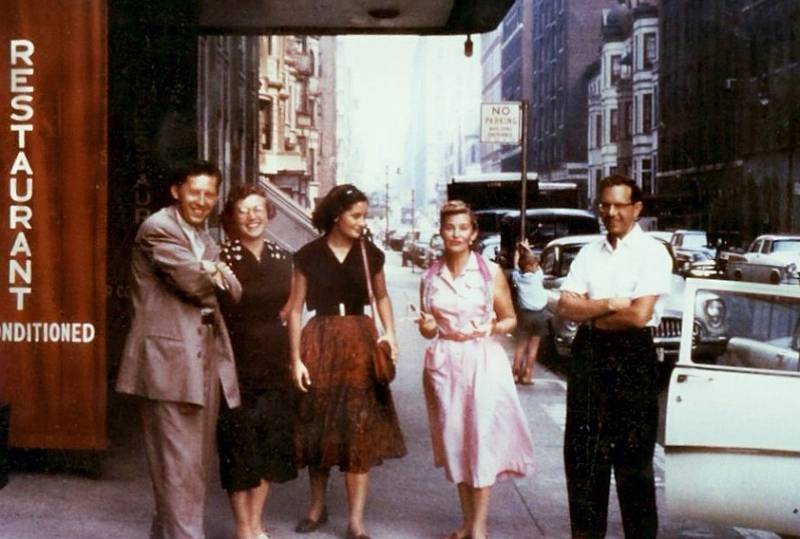
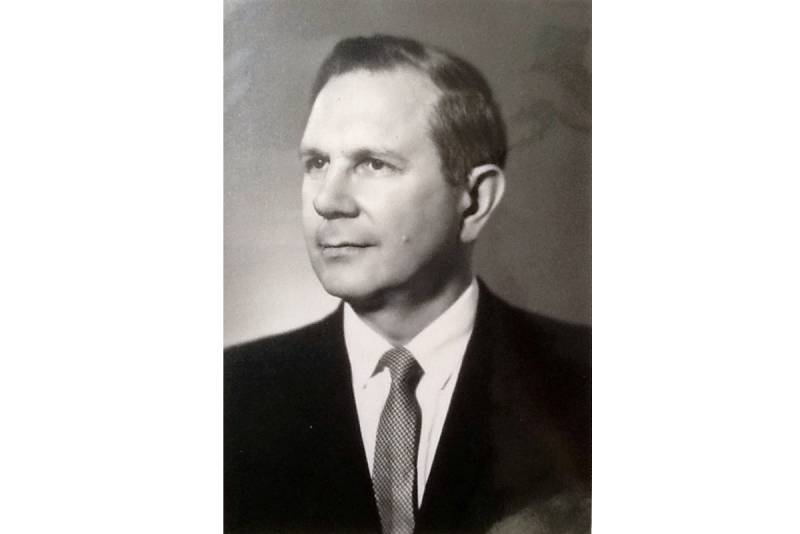
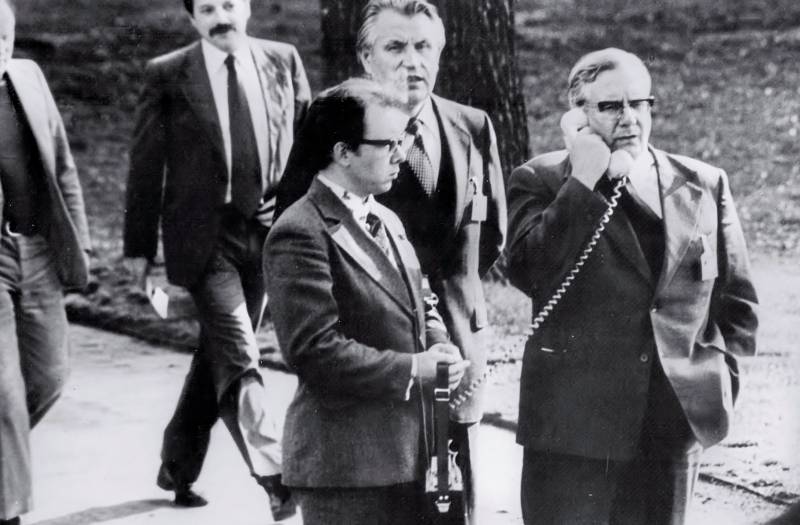
Information